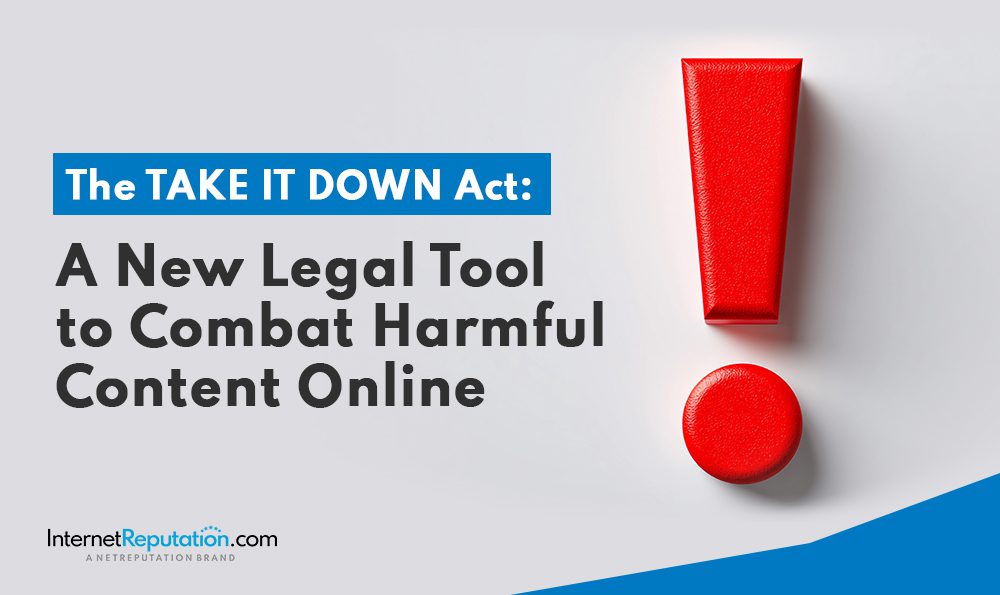Reputation Management For Nonprofits: Best Practices And Strategies

Reputation management is a critical component of nonprofit success. It helps ensure that potential donors, volunteers, and stakeholders are aware of an organization’s mission, values, and accomplishments. Without proper reputation management strategies in place, nonprofits can quickly be overlooked or, worse yet, maligned.
The good news is that several best practices and strategies are available to help nonprofit organizations manage their reputations effectively. From leveraging the power of social media to investing in professional PR services, these tactics will ensure that your nonprofit stands out from the crowd and has a positive presence across all channels.
In this article, we’ll explore some of the top tips for building and maintaining a strong reputation and insight on handling any negative press should it occur. Read on to learn more about reputation management for nonprofits and how you can use these strategies to ensure yours succeeds by InternetReputation!
→ Before starting, I invite you to read our various articles, which, I am sure, will interest you!
–Why is Online Reputation Important?
–Online Reputation Definition: What it Means and How it Can Help Your Business
–How to Clean Up Google Search Results and Restore Your Reputation
–What is Reputation Management? Our Complete Guide
–Top 15 Celebrities Who Are Difficult to Work With
-And more, visit our blog!
Definition Of Reputation Management
Reputation management for nonprofits is the practice of monitoring and managing public perception of an organization’s brand, mission, values, and overall image. It involves understanding what people say about a nonprofit’s work, how it communicates its message to the public, and how it responds to criticism or negative press. Reputation management can help build trust with stakeholders – donors, volunteers, partners, and other community members – by showing that an organization takes accountability seriously.
Reputation management is important for nonprofits to protect their credibility and boost donations. When managed effectively, it can help strengthen relationships between organizations and potential supporters who may be hesitant to donate without assurance of responsible use of funds. Furthermore, a strong online presence allows nonprofits to reach more potential supporters at once and increase visibility among traditional media outlets.
Achieving success with reputation management requires strategy and planning. This includes setting objectives based on organizational goals and developing proactive plans to ensure positive messages are out there alongside potentially damaging reports.
Types Of Nonprofits
Now that we better understand reputation management, it’s time to focus on nonprofits. Nonprofits come in various shapes and sizes, ranging from small charities with local impact to large organizations with global reach. Each type of nonprofit has different needs in terms of managing its reputation.
For example, religious organizations have unique goals and expectations compared to health care or educational institutions. Religious organizations may prioritize maintaining their traditional values while striving for relevance and modernization. On the other hand, healthcare or educational institutions need to keep up with changing regulations and trends to maintain an effective public image.
No matter what type of organization you are dealing with, certain best practices regarding reputation management for nonprofits can be applied across the board. These include building stakeholder relationships, providing transparent communication about activities and operations, and engaging communities through social media campaigns. The key is finding which methods will work best for your particular nonprofit so you can maximize your efforts and resources toward achieving your desired results.
Benefits Of Good Reputation Management
Good reputation management can provide many benefits for nonprofits. It helps to build trust with donors and the community, which leads to more donations and support. This is especially important in fundraising efforts, as it establishes a good relationship between the organization and its stakeholders. Additionally, positive reputations help organizations attract volunteers and qualified staff members eager to get involved.
A strong reputation also provides credibility among peers in their sector or geographic area. People are more likely to donate money if they know that an organization has been providing quality services for years and has built up goodwill over time. Furthermore, a good public image allows nonprofits to expand into new markets or collaborate with other groups without worrying about being judged negatively by potential partners.
Finally, having a good online presence is essential in today’s digital age. Positive customer reviews on social media platforms like Facebook and Twitter can go a long way toward boosting the nonprofit’s profile. Similarly, creating content such as blogs or videos can help increase the visibility of their mission and generate interest from potential supporters. Utilizing these strategies will ensure that your nonprofit maintains a strong public standing online and offline.
Potential Challenges
Nonprofits face a unique challenge when it comes to reputation management. Not only do they have to protect their image, but they also need to ensure that their organization is seen as beneficial in the community. While there are some potential challenges associated with managing a nonprofit’s reputation, strategies and best practices can help mitigate these issues.
The first challenge nonprofits may encounter involves communicating effectively with stakeholders. Stakeholders such as donors and volunteers must be involved in managing a nonprofit’s reputation if progress is going to be made. So nonprofits should strive to cultivate relationships with those stakeholders by engaging them regularly and keeping them updated on organizational changes or developments. Nonprofits may find this difficult due to resource constraints but will benefit from having an engaged and informed stakeholder base overall.
Another issue nonprofits may encounter is dealing with negative press or criticism online. Even though organizations may not always be able to control what is being said about them online, some steps can be taken to minimize its impact, such as responding promptly and thoughtfully whenever possible, sharing positive stories relating to their mission, and utilizing social media platforms for damage control purposes. Organizations should also ensure that staff members know how to respond appropriately during crises so the message is consistent across all channels.
Reputation management is crucial for nonprofits since it impacts public perceptions of the organization and revenue-generating activities like grant applications or fundraising campaigns. By understanding potential challenges faced when attempting to manage a non-profit’s reputation, organizations can better prepare themselves against future problems while taking advantage of opportunities presented through effective strategies and best practices tailored to meet their needs.
Identifying Your Target Audience
Nonprofits need to identify their target audience. This helps create an effective reputation management strategy that resonates with audiences and drives positive results. When determining the right target audience, there are a few key steps.
First, consider the types of individuals most interested in your mission and goals. Consider who will likely support you and how they might interact with your nonprofit organization or brand. Researching relevant demographic data can also provide valuable insight into which people may be more inclined to engage with your efforts.
Second, determine what channels are best suited for engaging with these groups of people. Consider where they spend their time online and any traditional outlets they use when researching organizations like yours. Additionally, look at competitor messaging strategies to craft better communication tailored to those demographics’ needs and interests.
Finally, develop tactics to connect with potential supporters on a personal level. Utilize storytelling techniques that allow audiences to relate directly to stories involving your charity work or cause-based initiatives; this will make them feel included in whatever you’re trying to accomplish. Additionally, focus on creating content that meets their expectations while providing value through educational materials, community outreach programs, and other activities related to your organization’s objectives.
Brand Voice And Messaging
Nonprofits must craft a brand voice and messaging that resonates with their target audience. This includes creating content that speaks to the organization’s mission, values, and goals. Consistency is essential to building trust and credibility among stakeholders.
When crafting a message for a nonprofit, it should focus on how donors can make an impact by supporting the organization. The language should be approachable yet professional, conveying strong emotion without being overly sentimental or cliched. The data and stories shared should be relevant and inspiring, showing how much of an effect the donations have had on those who benefit from the nonprofit’s work.
The branding efforts need not end there – nonprofits also need an effective outreach strategy to spread awareness about their cause. Social media campaigns are beneficial as they offer outlets where organizations can easily connect with current and potential supporters. Utilizing these channels allows for more engagement opportunities with followers, increasing visibility for short-term fundraising campaigns and long-term organizational objectives. A successful reputation management program relies heavily on engaging conversations between stakeholders and the nonprofit itself – built upon trust, transparency, and authenticity – which will ultimately lead to greater success for all involved parties.
Social Media Optimization
NONPROFITS should be aware of the power of social media optimization (SMO) as a key part of their reputation management strategy. SMO encourages organizations to interact with and engage individuals interested in their mission while also creating opportunities for those same people to share relevant content about the organization’s work with others. Using SMO techniques can help nonprofits reach new audiences by improving visibility through organic searches on social media channels like Facebook and Twitter.
Organizations must ensure that they actively manage their online presence by regularly updating profiles and pages on social networks. Additionally, they need to listen carefully to what other users say about them so that they can address any issues or concerns promptly. Furthermore, responding quickly and accurately will demonstrate competency and create trust among potential supporters. Finally, providing meaningful content with useful information helps promote engagement within the community, encouraging further participation from followers.
Nonprofits must recognize the importance of using this powerful tool to strengthen and maintain their positive reputations online. By utilizing SMO strategies effectively, they can build relationships with stakeholders while gaining valuable insight into how customers view them – helping them refine their messaging accordingly.
InternetReputation – Learn More!
When working with us, expect us to prioritize the importance of your online reputation in today’s digital age. A positive online image can boost your credibility, open up job opportunities, and enable you to achieve your aspirations. However, the online environment continually evolves, and creating a positive reputation can be challenging.
We are InternetReputation, and we have a skilled team of SEO, public relations, content strategy, and IT specialists, along with proven tools and techniques. We are well-prepared to handle any issue that could negatively impact your online reputation, such as bad press, unfavorable reviews, cyberbullying, or social media criticism. Our objective is to assist you in building a robust reputation and presenting yourself positively online.
Our Services:
–And more!!
Conclusion
In conclusion, reputation management is vital to nonprofits’ success. By implementing best practices and strategies, organizations can effectively manage their reputations and ensure that potential donors, volunteers, and stakeholders recognize their mission, values, and accomplishments. With the help of social media, professional PR services, and other tools, nonprofits can stand out and build a positive reputation across all channels.
Good reputation management offers numerous benefits, such as building trust with stakeholders, increasing donations and support, attracting volunteers and qualified staff, and expanding into new markets. However, nonprofits face unique challenges in managing their reputation, such as effectively communicating with stakeholders and dealing with negative press or criticism online.
To overcome these challenges, nonprofits must identify their target audience and craft a brand voice and messaging that resonates with them. Additionally, they can benefit from utilizing social media optimization strategies to engage with potential supporters and increase visibility. At Internet Reputation, we are dedicated to helping nonprofits build a robust reputation and present themselves positively online. With our range of services, including review, content, mugshot removal, and local SEO, we support your organization’s reputation management needs.



